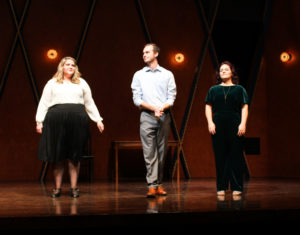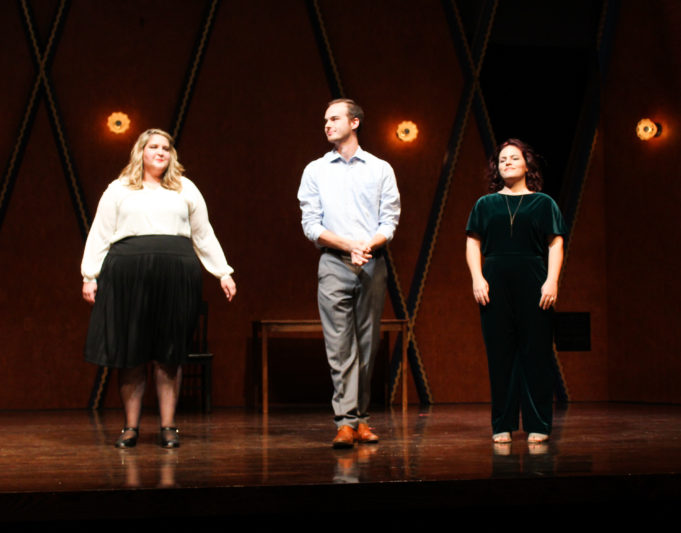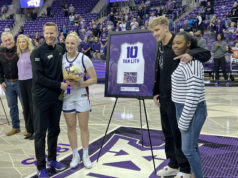The long-winded tradition of song has few unifying features. Toss a dollar into a busking singer-songwriter’s guitar case, ask for a tune, and you could theoretically hear anything from a Bob Dylan cover to “Yankee Doodle” or Franz Schubert’s “Erlkönig.” TCU’s Festival of American Song narrows the vocal lens to classical-leaning choral works penned by living composers. Now in its fifth year, the annual festival has largely maintained its formula of education-focused workshops, concerts at PepsiCo Recital Hall on the TCU campus, and a featured guest composer.
Last night’s festival opener, Farewell, Auschwitz, kicked off with a brief introduction by composer Jake Heggie, who touched on his childhood love of song, particularly those sung by Barbra Streisand.
“I wrote lots of songs for Barbra Streisand when I was 14,” he confessed to chuckles from the audience. Farewell, Auschwitz, he continued, is a dramatic song cycle that “explores the Holocaust.”
Based on lyrics written by Holocaust survivor Krystyna Zywulska, the six-movement work is composed for three singers and a chamber ensemble.
Baritone Sam Parkinson, soprano Anne Wright, and mezzo-soprano Heather Weirich opened “Soldiers” with odd hand gestures. The trio mimicked the hand motions of Dixieland brass players to the backdrop of a tangoesque dirge.
“I do not need millions,” Weirich sang with devil-may-care abandonment. “Just paper and a pencil.”
Seated at a desk (the only prop onstage), Weirich was interrupted by the relentless drive of Argentinian dance rhythms. Farewell, Auschwitz’s movements are not tied together stylistically or texturally. “Diamonds” swirled with iridescent impressionistic accompaniments as Parkinson gave a forceful but theatrically dry vocal soliloquy. While the singers stood stage left because of the onstage musicians, the vocalists often failed to turn their gaze toward the bulk of the audience, who sat stage right.
Weirich blended fine acting and singing on “In the Cards,” which was set to Paganini’s “La Campanella.” Wright returned for “Irenka,” which was similarly set to the strains of a familiar classical music work, this time Chopin’s C sharp minor waltz. The performance initially fell flat, due to the predictable backdrop of the popular piano character piece, but broke free midway thanks to an impassioned vocalise by Wright. Her heartfelt interpretation came to fruition two minutes in as her refrains of “why are you crying” were matched by her quivering voice and unbridled delivery. “The Sun and the Skylark” pitted Wright against Weirich in a lovely duet. The rendering was gorgeous and largely in sync, aside from Weirich’s slow vibrato, which inadvertently grated against Wright’s vocals.
Farewell, Auschwitz ended with a triumvirate of powerful performances by Parkinson, Weirich, and Wright, each giving his or her all for the polyphonic and hookish finale. The evening concluded with a palpable energy as the performers stepped up to deliver what was, in the end, a memorable concert.
Festival of American Song continues today at PepsiCo Recital Hall. The 7pm concert features selected works by Heggie. — BY EDWARD BROWN













